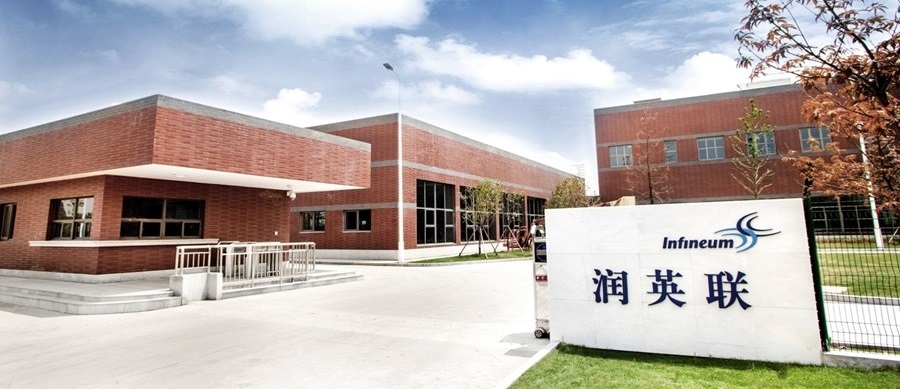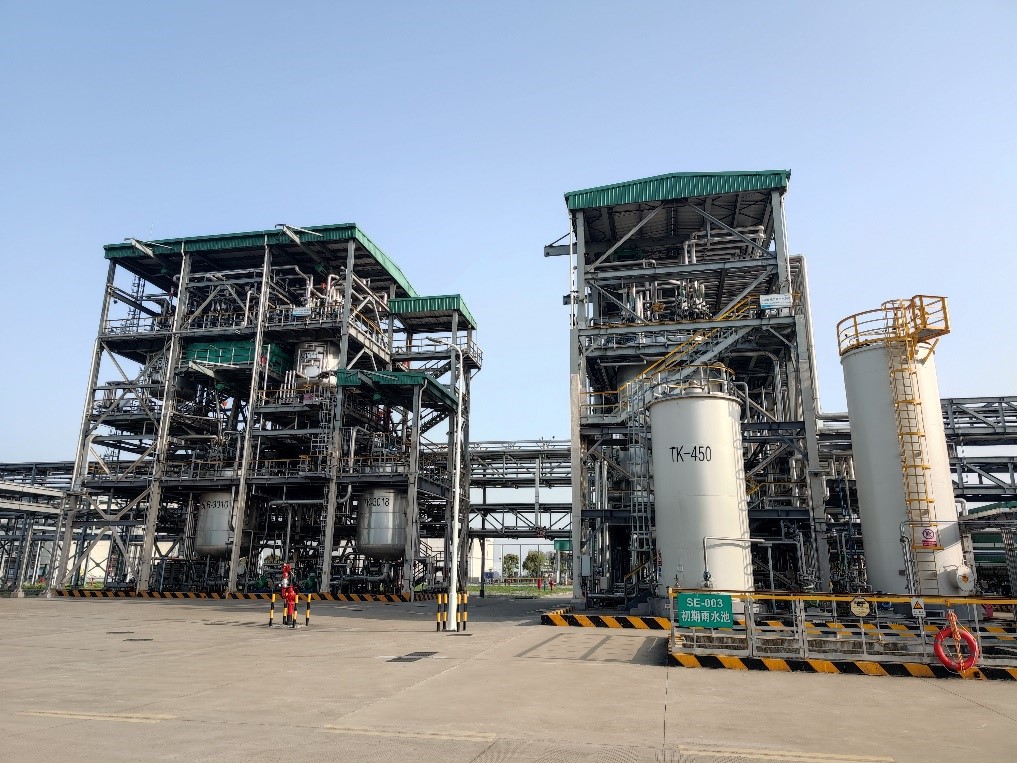Less washing, less waste oil
Through clever data analysis, Infineum has significantly reduced the production of hazardous waste material generated during essential cleaning operations at our China manufacturing plant.

Wash oil is a base oil used during the manufacturing process to flush out blending equipment between blends. This cleaning process removes any residue which could contaminate the next product being manufactured.
Each time a storage tank (pictured below, TK-450) is flushed out, the wash oil used is monitored to ensure its contamination levels remain within set limits. If so, it is recycled and used again. If not, the wash oil is disposed of in line with local hazardous waste regulations.

With a focus on operating more sustainably across all our operations, ways to reduce the impact of this cleaning procedure were investigated by the production team at Zhangjiagang.
Options explored included recovering the base oil from the contaminated wash oil and reusing it, or selling the wash oil for other purposes, rather than disposing of it. However, these options did not stack up either environmentally or economically.
Instead, by adapting a data analysis software tool already used at our plant in Italy, the team now calculates the contamination level of the current product being blended too. They use this information to assess whether these levels will be acceptable in the next batch to be blended. If so, there is no need to flush. Previously, the blending equipment was being cleaned after every batch.
By flushing only when necessary, wash oil is used less frequently and its lifecycle becomes much longer before disposal is necessary.
Consequently, our Zhangjiagang plant generated 112 tonnes less waste wash oil in 2021 compared to 2020 – a reduction of 44%.
As production at the plant increases, and more wash oil is needed for more frequent cleaning, this effective new tool will become increasingly important in minimising the generation of waste. Hence, Infineum continues to explore ways of making the process more user-friendly and to train new technicians.
